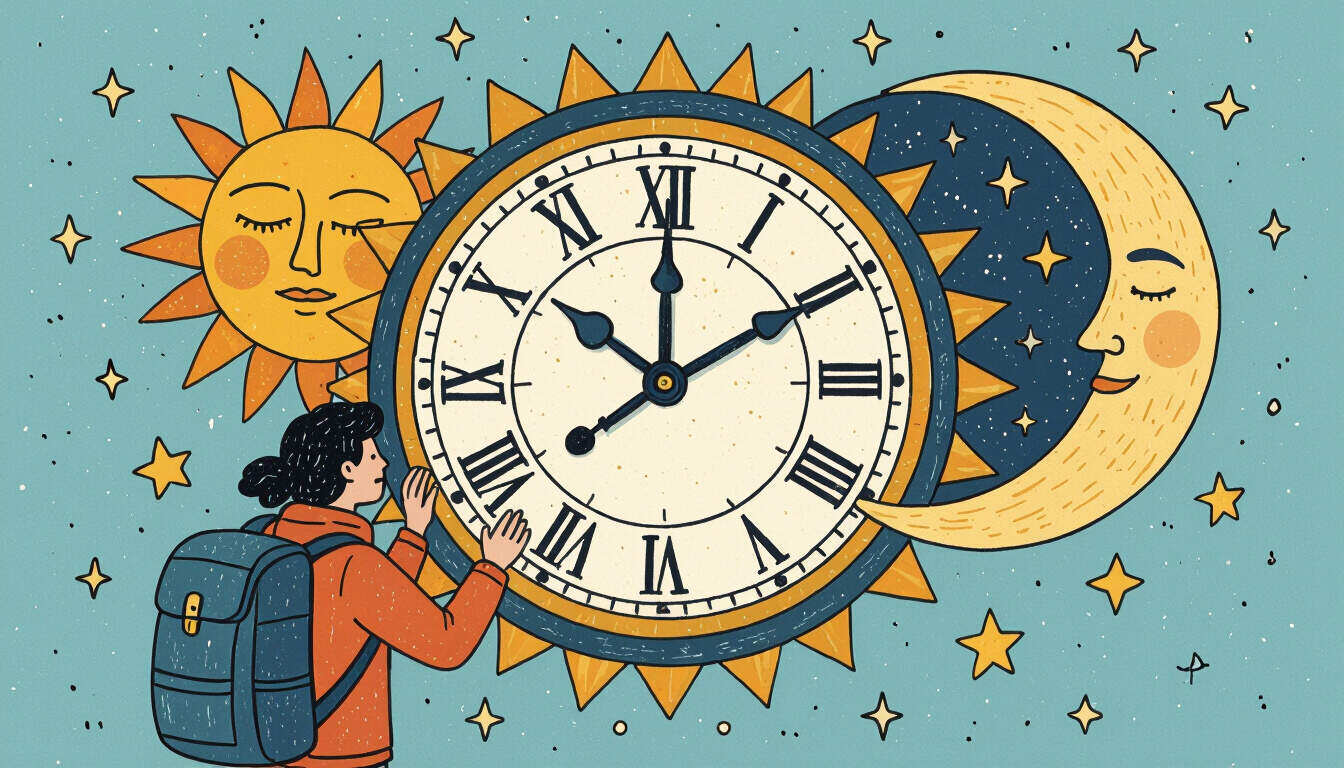Remedies for Travel Fatigue and Circadian Rhythms
 by Lilian Nienow
by Lilian Nienow
Travel fatigue often stems from disruptions to natural body clocks, affecting sleep and energy. This article explores how aligning with circadian rhythms can ease symptoms, boost health, and enhance productivity through simple, effective strategies for anyone on the go.

Travel fatigue can strike after long journeys, leaving individuals feeling drained and out of sync. This condition frequently ties back to circadian rhythms, the internal processes that regulate our sleep-wake cycles based on light and darkness. By focusing on these natural patterns, people can find ways to recover more quickly and maintain their well-being.
Circadian rhythms operate on a roughly 24-hour cycle, influenced by external cues like sunlight. When travel involves crossing time zones, these rhythms face sudden shifts, leading to symptoms such as insomnia or daytime drowsiness. For busy professionals, this disruption means lower focus and efficiency at work. Recognizing the link between travel fatigue and these biological clocks is the first step toward effective recovery.
How Circadian Rhythms Influence Health
These internal clocks play a key role in overall health, governing hormone release, metabolism, and even immune function. Imbalances from travel can result in headaches, mood swings, and reduced performance. For health enthusiasts, maintaining these rhythms supports better physical recovery and mental clarity. Studies show that consistent patterns help stabilize energy levels, making it easier to handle daily demands.
One example is how light exposure affects melatonin production, a hormone that promotes sleep. During travel, irregular light patterns can throw off this process, causing prolonged fatigue. By paying attention to natural light, individuals can realign their bodies more smoothly.
Practical Tips for Tuning Daily Routines
To combat jet lag, start by adjusting your schedule before departure. Shift your sleep times gradually to match the destination's time zone. This approach minimizes the shock to your system and promotes faster adaptation.
Exposure to natural light is another helpful strategy. Upon arrival, seek daylight to reset your internal clock. For instance, a morning walk can signal to your body that it's time to wake up, enhancing alertness throughout the day.
Meal timing also matters. Aligning eating schedules with local time helps regulate digestion and energy. Opt for lighter meals during travel to avoid further strain on your system.
Physical activity plays a part too. Simple exercises, like stretching or a short run, can boost circulation and improve mood. Regular movement during trips supports productivity by keeping energy steady and reducing restlessness.
Hydration is essential as well. Dehydration often worsens fatigue symptoms, so drink water consistently. Aim for at least eight glasses a day, adjusted for travel conditions, to keep your body functioning optimally.
For those with irregular schedules, such as frequent flyers, creating a routine toolkit can be beneficial. This might include items like eye masks for better sleep or apps that track light patterns, all aimed at supporting your rhythms.
The Impact on Productivity and Long-Term Health
Beyond immediate discomfort, ongoing travel fatigue can hinder long-term productivity. Disrupted rhythms may lead to chronic issues like weakened immune response or cognitive slowdown. Health enthusiasts often report that consistent tuning results in sharper decision-making and sustained motivation.
In professional settings, this means fewer errors and more creative output. By prioritizing rhythm alignment, individuals can turn travel into an opportunity for growth rather than a setback.
Consider a scenario where a business traveler uses these strategies: arriving early, adapting to local time, and incorporating rest. The result is not just quicker recovery but also improved performance in meetings and interactions.
Building Sustainable Habits
Incorporating these remedies into everyday life creates lasting benefits. Start small, like establishing a consistent bedtime, and build from there. Over time, this fosters resilience against disruptions, whether from travel or daily life.
For anyone seeking better routines, the key is consistency. By respecting your body's natural cycles, you pave the way for enhanced health and efficiency. These steps empower busy individuals to thrive, turning potential challenges into chances for optimization.
In summary, addressing travel fatigue through circadian rhythm awareness offers a pathway to improved well-being. With thoughtful adjustments, the effects on health and productivity become positive and enduring.
